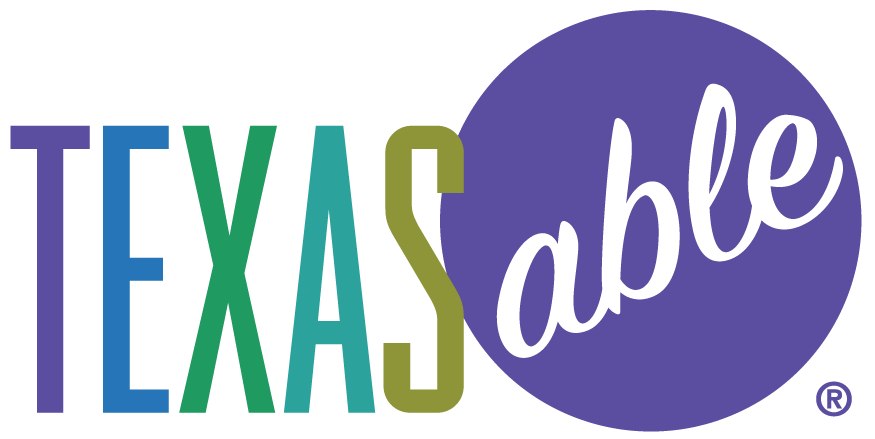Eligibility Overview
Who is Eligible to Open the Account?
You are eligible (an “Eligible Individual”) to open an account if you meet the following three requirements:
- 1. You are a Texas resident.
- 2. Your disability was present before age 26.
- 3. You can prove your disability through one of the following ways:
- First option.SSI or SSDI Eligibility
- – You are entitled to receive Supplemental Security Income (SSI) or Social Security Disability Insurance (SSDI) based on blindness or disability, or your entitlement to SSI benefits has been suspended solely based on excess income or resources, or
- Second option.Physician’s Diagnosis
- – A licensed physician has provided you a written diagnosis that you: a) are blind (within the meaning of the Social Security Act), or b) have a medically determinable physical or mental impairment that results in marked and severe limitations that can be expected to result in death or has lasted or is expected to last at least 12 months. Note: you do not have to provide us with a copy of the diagnosis during enrollment, but a copy of the diagnosis must be available upon request, or
- Third option.Compassionate Allowances Conditions
- You have a condition listed on the Social Security Administration’s list of Compassionate Allowances Conditions.
Enrollment Process
If the above criteria can be met, start the enrollment process.
If you have any questions regarding an individual’s eligibility, or have an active ABLE account that you would like to rollover or transfer into a Texas ABLE account, please contact us at:
Telephone: 1-844-4TX-ABLE (844-489-2253)
What is the Beneficiary?
The beneficiary is the owner of the ABLE account and person for whom the account is established. The beneficiary, or their Authorized Legal Representative, is required to certify under penalty of perjury that the beneficiary meets the eligibility requirements listed above.
The beneficiary or their Authorized Legal Representative, if any, also must agree to provide the program any documents supporting his or her eligibility (such as the Social Security Administration’s SSI or SSDI award letter or a physician’s written diagnosis). An Authorized Legal Representative must agree to provide documents to the program demonstrating their status as an Authorized Legal Representative for the beneficiary. The Authorized Legal Representative can be the beneficiary’s authorized agent under a Power of Attorney, conservator, legal guardian, spouse, parent, sibling, grandparent, or representative payee appointed for the Eligible Individual by the Social Security Administration, in that order. If a beneficiary or Authorized Legal Representative does not provide the requested documentation within 30 days of the request, the program may suspend or close the account.
The application requires certain eligibility information, the selection of investment options, the beneficiary’s name, address, date of birth, Social Security Number, and any other information requested by the program. The beneficiary or their Authorized Legal Representative, if any, must provide the required information to transact on the account.
If the beneficiary ceases to be an Eligible Individual, the program will not accept additional contributions to the account, beginning on the first day of the beneficiary’s following taxable year. It is the beneficiary’s or their Authorized Legal Representative’s responsibility to notify the program of any change in eligibility in a timely manner. If the beneficiary is not an Eligible Individual, expenses incurred after the date the beneficiary is no longer an Eligible Individual will not be considered qualified disability expenses by the IRS and any earnings on distributions could be subject to federal income tax and a 10% additional tax. You should carefully read the “Eligible Individuals” and “Tax Considerations” section of the Program Disclosure Statement for more information.
